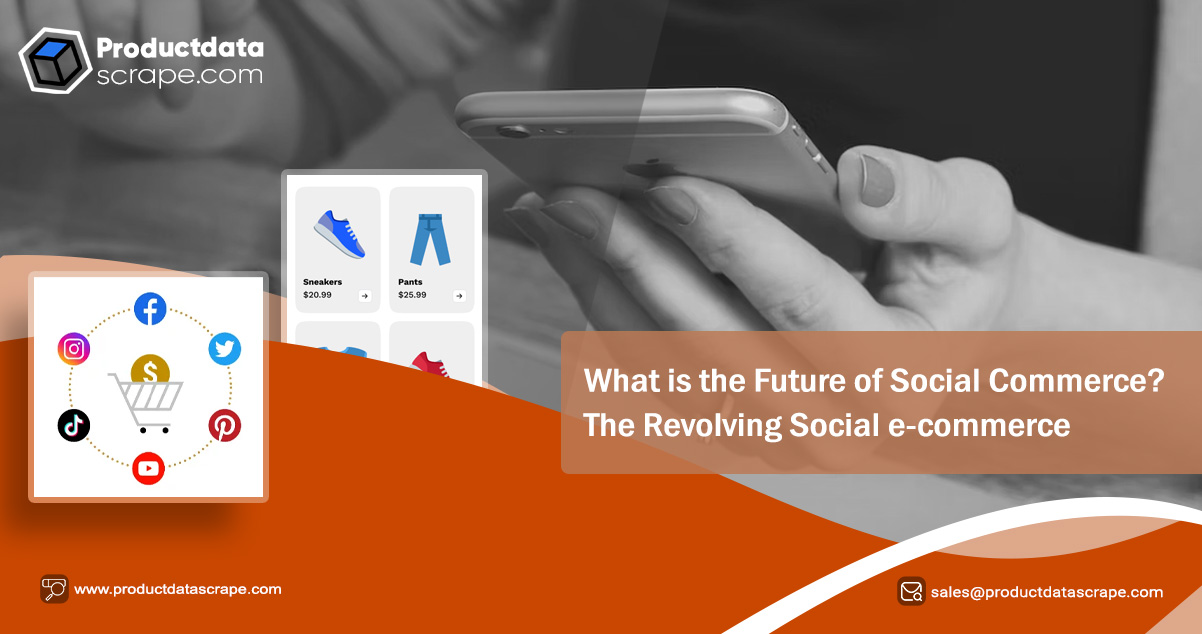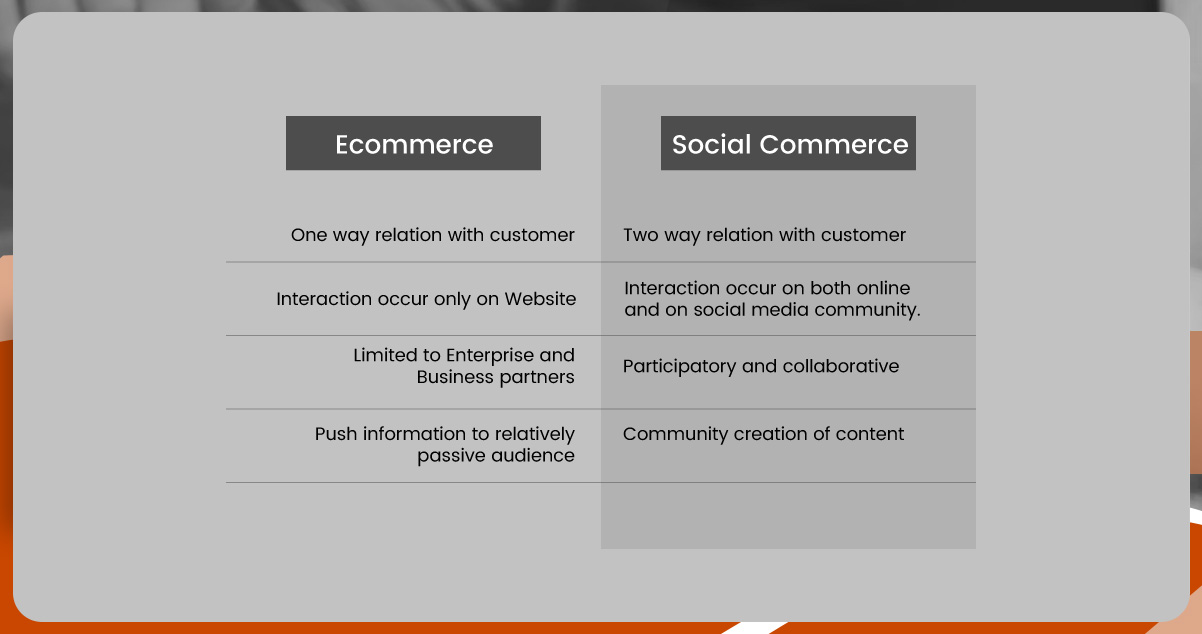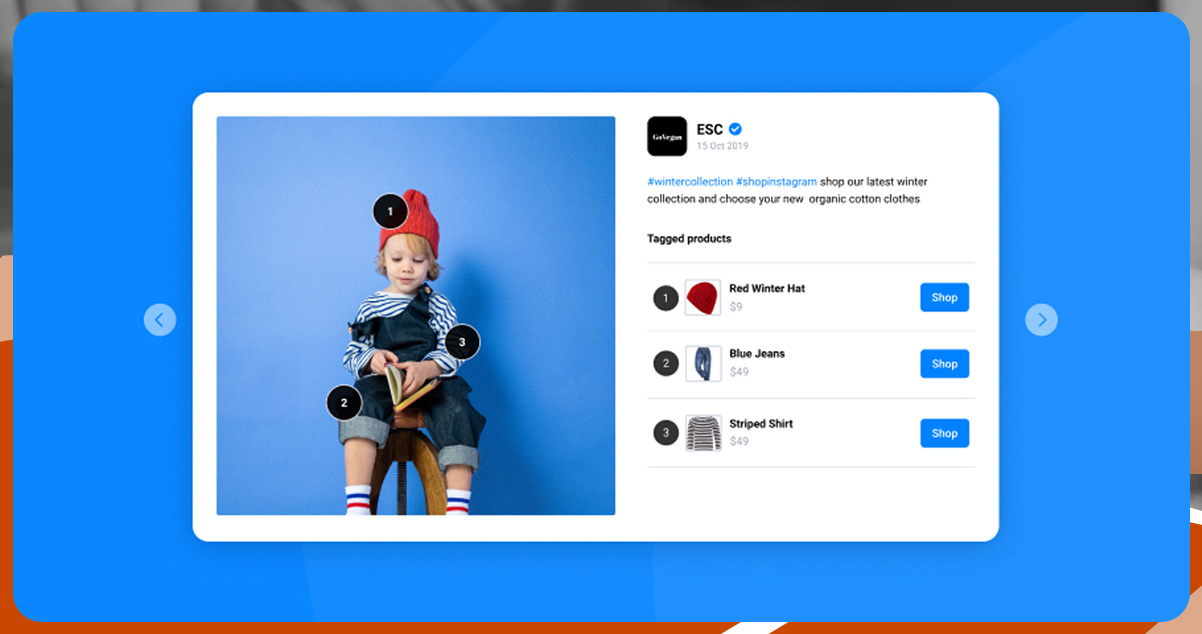
Social commerce means selling products and services using social media
channels. It is because
social media platforms are an integral part of a buyer's lifestyle, considering that they
use them
and engage with the content and scroll feeds without limits. Many companies use social media
platforms like Snapchat, Facebook, Twitter, Instagram, and LinkedIn to sell their products and
services quickly.
The social commerce model adjusts to high social media uses and user engagement beyond the
conventional role of the pipeline marketing model. As per the social media investment report,
over 90 percent of experts conclude that they can drive increased marketing revenue using
social commerce. Over 85 percent of social media data will be the primary resource for
business intelligence.
Let's dive deep and explore why brands need to consider using social media
platforms to sell
their products and services.
Comparison Between Social Commerce, eCommerce, and Qcommerce

Though QCommerce, Social Commerce, and e-commerce are the branches of the same tree of
online selling, they are different in terms of their working models.
What is eCommerce?

It means shopping for products using an online website or app of a brand or retail seller.
Consumers can use these platforms using their mobile or desktop devices. But the sales
pipeline typically appears the same. Here, brands and retail sellers use social media
marketing,
paid ads, blogging, and other digital marketing techniques to drive visitors to their online
stores. There are three major types of online businesses, namely B2B, B2C, and C2C.
What is Q-Commerce (Quick Commerce)?
.jpg)
It is an eCommerce business with modifications, where stores and retail sellers offer
delivery
quickly within a few hours. Mainly food delivery comes under this business category. It came
into demand due to changes in consumer behavior and quick delivery demands. You can also
call instant delivery or on-demand delivery.
What is Social Commerce?

Considering that more and more mobile users are using the internet and social media
platforms for eCommerce nowadays, brands can take advantage of it to grow brand awareness
and drive sales using content marketing strategies. It helps to reduce massive efforts of
calling
potential customers to buy products. Using social media, brands, and retail sellers must
share
product details with audiences, and potential customers take further action.
The Rise of Social Commerce
Yahoo began using social commerce in 2005 for the first time, Where they named collaborative
shopping tools like shared pick lists, user ratings, user-generated content, etc. Social
media
platforms snowballed in the recent two decades, along with the rise in the eCommerce
business. It resulted in consumers and sellers identifying the advantages of purchasing and
running sales campaigns using social networks. These platforms grew from zero to one to
serve
extension and virtual storefronts of the company's digital platforms or store, with
buying
experience handling capabilities.
The Top Social Commerce Platforms

Social platforms expect their visitors to keep using their platform longer. This increased
duration on their website or app allows them to serve ads to generate more revenue. These
platforms have billions of active people, so they have the edge to help brands and
individuals
engage with their audience or customers and help them with after-sales support without any
hassle. Let's look into a few leading social commerce platforms below.
Facebook

Facebook launched Facebook Shops to capitalize on the commercial opportunity to motivate
their vendors to run advertisement campaigns and generate revenue on their products directly
using Facebook. It integrates social commerce using shopping, enabling buyers to buy
products
easily. Facebook shops also offer smooth UX for users to review products and get suggestions
from trusted brands and sellers. Consumers can directly communicate with the seller's
customer service department after buying the product for after-sales support.
Instagram

Instagram offers in-app shopping and capitalizes all transactions using the app itself. Over
60
percent of people search for new products on this platform. Instagram users frequently wish
to
follow ongoing trends and copy their favorite influencers or role models. By offering buying
options inside the platforms, Instagram allows businesses to sell ideas with the help of
videos
and visual infographics instead of the conventional selling process.
TikTok

In association with Shopify, TikTok to launch shopping and generate sales using the growing
audience of TikTok. Using the business ads manager of TikTok, merchants and brands can make
and share product base videos in the feed of their audience. It also helps Shopify merchants
to
grow their audience using TikTok.
Snapchat

The Snapchat platform has launched Brand profiles recently. This feature allows users to
scroll
down the products and purchase them inside the app. Shopify is also involved in this
feature,
allowing brands and native stores to create profiles on Snapchat and sell products using the
platform.
Pinterest

Pinterest is a platform similar to Instagram, where users share boards of their favorite
images.
The platform offers nothing like social commerce but allows users to create product pins to
display in the brands' Pinterest shop. Only American buyers can purchase products within
the
app, whereas other users need to go to an eCommerce website to finish the sale.
Why Do Brands Need to Care About Social Commerce?
 To Improve Presence and Brand Awareness on Social Media
To Improve Presence and Brand Awareness on Social Media
Most use social media daily if you want to target people from the 18 to 35 age group.
Further,
they tend to purchase at least one product using social media apps yearly. You can take
advantage of this and promote your brands on social media to enhance brand awareness and
visibility on social media platforms using different methods like influencer marketing,
advertisements, and organic marketing.
To Generate Brand Loyalty with Social Proof
Over 90 percent of online buyers read customer reviews and ratings of the product they want
to purchase using social media or eCommerce platforms. You can get customer reviews,
ratings,
or testimonial videos to get an edge in selling products and building social proof.
To Make a Smooth Buying Process
Instead of creating an account on a website and exploring multiple platforms, it is easier
for
customers to buy products by searching for a product, clicking on it, making payments, and
buying.
Conclusion
Social commerce helps brand and customers to save time, enhances user experience, and
boost brand awareness. If you want to work on the same, contact Product Data Scrape for
retail analytics, e-commerce data scraping, and analytics.




.jpg)







 To Improve Presence and Brand Awareness on Social Media
To Improve Presence and Brand Awareness on Social Media






























.webp)






